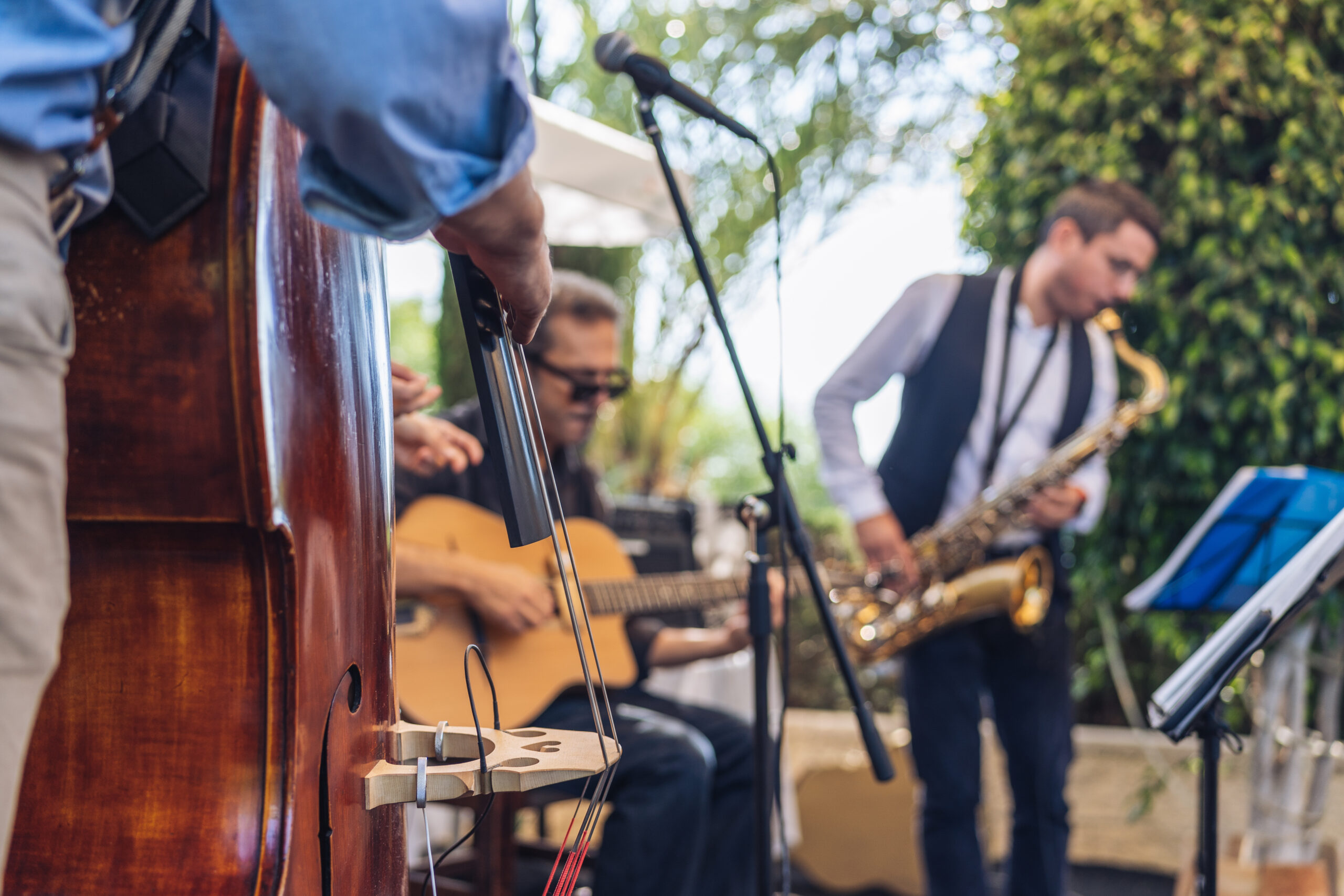Playing music is more than just a creative outlet; it teaches valuable life skills that extend far beyond the notes and rhythms. For me, playing drums, bass, and singing in St. Christopher’s Jazz Band has been an experience that influenced my leadership style and approach to problem-solving in ways I never expected. Jazz, in particular, with its emphasis on improvisation and teamwork, has shaped my understanding of collaboration, communication, and adaptability. The lessons I’ve learned in the band room have influenced not only my musical growth but also my leadership development.
The Power of Collaboration
One of the key lessons I’ve learned from playing in a jazz band is the importance of collaboration. Jazz, by its nature, is a group effort where each musician plays an essential role. While the spotlight may shift between solos, the foundation of every performance is a cohesive team effort. Whether I’m behind the drums setting the tempo or playing the bass to create the groove, I’ve learned to listen intently to others, adjusting my playing to complement the rest of the band.
In leadership, the ability to listen and adapt to others is essential. My experience on the swim and dive team taught me the value of this skill. Understanding the strengths and weaknesses of teammates and knowing when to step up or step back is much like playing in a band. As jazz legend Duke Ellington once said, “A problem is a chance for you to do your best.” This mentality translates well to leadership, where every challenge is an opportunity for growth—for yourself and those around you.
Improvisation as a Leadership Tool
Improvisation is the heartbeat of jazz. The ability to think on your feet and create in the moment is what makes jazz such an exciting and dynamic genre. Improvising on stage has taught me to be flexible and open to change. In life and leadership, unexpected situations arise all the time, and the ability to adapt—much like in a jazz solo—is critical.
When I’m called to improvise during a performance, I rely on both my own creativity and the support of the band. It’s about finding balance, much like when leading a team or navigating a challenging project. This skill came into play when I led fundraising initiatives for the Hannah Pet Society. There were moments when plans didn’t unfold as expected, and I had to quickly pivot and find new solutions. Improvisation helped me think outside the box and approach challenges from different angles.
As jazz great Miles Davis once said, “Do not fear mistakes. There are none.” This philosophy not only applies to music but also to leadership. The freedom to explore, experiment, and occasionally fail is what pushes innovation and growth—whether you’re playing music or managing a team.
Creative Problem-Solving Through Music
Playing multiple instruments, especially in a jazz band, requires creative thinking. Each instrument has its own role, but they all contribute to the same goal: producing a harmonious and engaging sound. Drums may drive the rhythm, the bass adds depth, and vocals deliver the melody. Balancing these elements and finding creative ways to contribute to the overall sound has sharpened my problem-solving skills.
For instance, there are moments in a performance where things don’t go as planned. Maybe the tempo slips, or someone misses a note. In those moments, it’s not about pointing out mistakes but rather finding a way to keep the music flowing. This collaborative problem-solving is key in any leadership role. When I approach challenges in school or in my extracurricular activities, I draw on these musical experiences. I’ve learned to think creatively, weigh different perspectives, and find solutions that benefit the whole group.
Fostering Confidence and Empowering Others
One of the most rewarding aspects of being part of the jazz band is seeing how my confidence as a musician has grown over time. Starting as a shy drummer in the background, I gradually found my voice, both as a musician and as a leader. Music has given me the confidence to take risks, step into the spotlight, and express myself creatively.
This personal growth has also shaped my leadership style. I believe in empowering others to find their voice, just as I found mine through music, is one of the most important things a leader can do. In both music and leadership, success is not just about individual achievements but about lifting others up and creating an environment where everyone can thrive.
Whether I’m mentoring a fellow swimmer on the team or collaborating with a fellow band member on a new arrangement, I aim to encourage those around me to grow and succeed. As conductor Leonard Bernstein once said, “To achieve great things, two things are needed: a plan, and not quite enough time.” This rings true for leadership in both music and life—creating an atmosphere where people feel empowered to take initiative, even under pressure.
The Harmony of Music and Leadership
Music has shaped my leadership style in countless ways, teaching me the value of collaboration, improvisation, creative problem-solving, and empowerment. Playing in St. Christopher’s Jazz Band has not only been an incredible artistic experience but also a journey of personal growth that has influenced my approach to leadership in school, sports, and beyond. In the end, both music and leadership are about connection—building trust, communicating effectively, and working together to create something greater than the sum of its parts.
Through jazz, I’ve learned being a leader means more than just taking charge; it’s about listening, adapting, and inspiring those around you to reach their full potential.
